Clark lecturers
 |
2024–25 Patty Krawec, Anishinaabe/Ukrainian writer and speaker who belongs to Lac Seul First Nation in Treaty 3 territory, Canada. “Surviving Together.” Part of the Re-imagine series. |
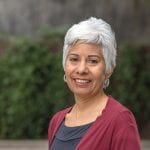 |
2023–24 Laura Pulido, Indigenous, Race, and Ethnic Studies and Geography, University of Oregon. “White Nationalism and GOP Climate Obstruction.” Part of the Humanities Matter(s) series. |
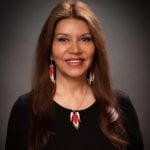 |
2022–23 Chartlotte Coté (Tseshaht First Nation), American Indian Studies, University of Washington. “c̓uumaʕas. The River that Runs through Us.” Part of the Belonging series. |
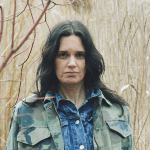 |
2021-22 Leanne Betasamosake Simpson, Michi Saagiig Nishnaabeg scholar, writer, and musician. “Rehearsals for Living: My First Letter.” Part of the Imagining Futures series. |
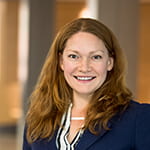 |
2020-21 Bathsheba Demuth, History and Environment and Society at Brown University. “The Reindeer at the End of the World.” Part of the Climate Justice series. |
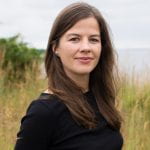 |
2019-20 Elizabeth Rush, Creative Nonfiction, Brown University; author of Rising: Dispatches from the New American Shore (2018). “On Rising Together: Creative and Collective Responses to the Climate Crisis.” Part of the Convergence series. |
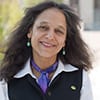 |
2018-19 Nalini Nadkarni, Professor of Biology, University of Utah.“Tapestry Thinking: Weaving the Threads of Humans and Nature”. Part of the Common Good series. |
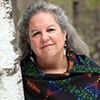 |
2017-18 Robin Wall Kimmerer, plant ecologist, writer and SUNY Distinguished Teaching Professor at the SUNY College of Environmental Science and Forestry in Syracuse, New York.“We the People: Expanding the Circle of Citizenship”.” Part of the We the People series. |
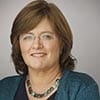 |
2016–17 Lucy Jones, former U.S. Geological Survey seismologist, founder of the Dr. Lucy Jones Center for Science and Society. “The Fault Lies Not in Our Stars: Why Natural Disasters Become Human Catastrophes.” Part of the Humanities series. |
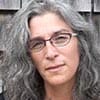 |
2015–16 Lori Gruen, Philosophy and Animal Studies, Wesleyan University. Author of Entangled Empathy: An Alternative Ethics for our Relationships with Other Animals (2015).“Justice and Empathy Beyond the Human.” Part of the justice series. |
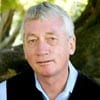 |
2014–15 Frans de Waal, director, Living Links Center; C. H. Candler Professor of Primate Behavior, Emory University. Author of The Age of Empathy: (2009) and The Bonobo and the Atheist (2013). “The Evolution of Connectivity: Empathy, Altruism, and Primate Social Skills.” Part of the connection series. |
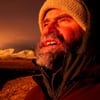 |
2013-14 Craig Childs, science writer and adventurer; author of Apocalyptic Planet: A Field Guide to the Future of the Earth and The Animal Dialogues: Uncommon Encounters in the Wild. “Apocalyptic Planet: A Field Guide to the Future of the Earth.” Part of the vulnerable series. |
 |
2012-13 David Eagleman, neuroscientist and director of the Laboratory for Perception and Action, Baylor College of Medicine; author of Sum: Forty Tales from the Afterlives and Incognito: The Secret Lives of the Brain. “The Secret Lives of the Human Brain.” Part of the being human | human being series |
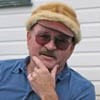 |
2011-12 Doug Peacock, naturalist, outdoorsman, and author of Grizzly Years: In Search of the American Wilderness and Walking it Off: A Veteran’s Chronicle of War And Wilderness. “The Greatest Adventure: A Survivor’s Guide to a Melting Century.” Part of the Conflict series. |
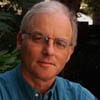 |
2010-11 Richard Louv, journalist and author of Last Child in the Woods: Saving Our Children from Nature-Deficit Disorder. “Beyond Nature-Deficit Disorder: The Restorative Power of the Natural World.” Part of the Sustenance series. |
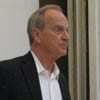 |
2009-10 Denis Hayes, President and CEO of the Bullitt Foundation, National Coordinator of the first Earth Day in 1970. “Is Prosperity Incompatible with Posterity?“ |
 |
2008-09 Sean Carroll, Molecular Biology and Genetics, Howard Hughes Medical Institution, University of Wisconsin. “Remarkable Creatures: Epic Adventures in the Search for the Origins of Species.” Part of the Darwin Lecture Series. |
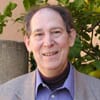 |
2007-08 Stephen Schneider, biology and environmental studies, Stanford. “Global Warming: How Do We Manage the Risks?“ |
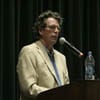 |
2006-07 David James Duncan, writer. “Why the American West Needs the Asian East” |
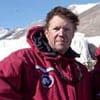 |
2005-06 William L. Fox, writer. “Terra Antarctica: Looking into the Emptiest Continent” and “Climbing Mt. Limbo: On the Edge of Land and Language.” |
| 2004-05 There was no Clark Lecture |
|
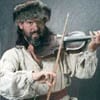 |
2003-04 Daniel Slosberg, fiddler and living historian. “Pierre Cruzatte: A Musical Journey along the Lewis and Clark Trail.” |
 |
2002-03 Kathleen Dean Moore, Professor of Philosophy, Oregon State University, and Director, Spring Creek Project for Ideas, Nature, and the Written Word. “The Sound of Human Longing: Field Notes for an Environmental Ethic of Care.” |
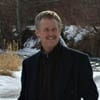 |
2001-02 David Quammen, science writer. “The Improbable Lion and the Post-Communist Bear: Man-Eating Predators in a Crowded World.” |
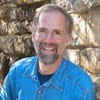 |
2000-01 William Cronon, Frederick Jackson Turner Professor of History, Geography and Environmental Studies, University of Wisconsin-Madison. “Telling Tales on Canvas: Landscapes of Frontier Change.” |
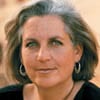 |
1999-2000 Terry Tempest Williams, author, naturalist, and environmental activist. “Hieronymus Bosch in North America.” |
| 1998-99 There was no Clark Lecture |
|
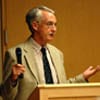 |
1997-98 David Rains Wallace, Recipient, John Burroughs Medal for Nature Writing, former NEA and Fulbright Foundation fellow. “Land Bridges and Land Ethics.” |
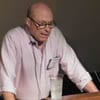 |
1996-97 Chris Maser, forest ecologist, writer on nature and culture. “Sustainable Community Development.” |
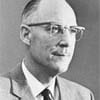 |
1995-96 Robert D. Clark, President Emeritus, University of Oregon. “Thomas Condon, Geologist and Preacher: His Reconciliation of Science and Religion.” |